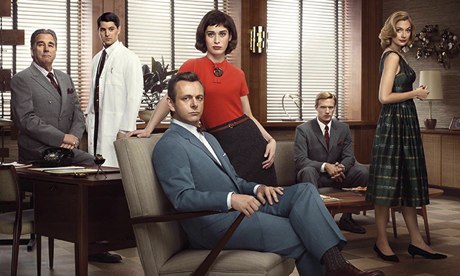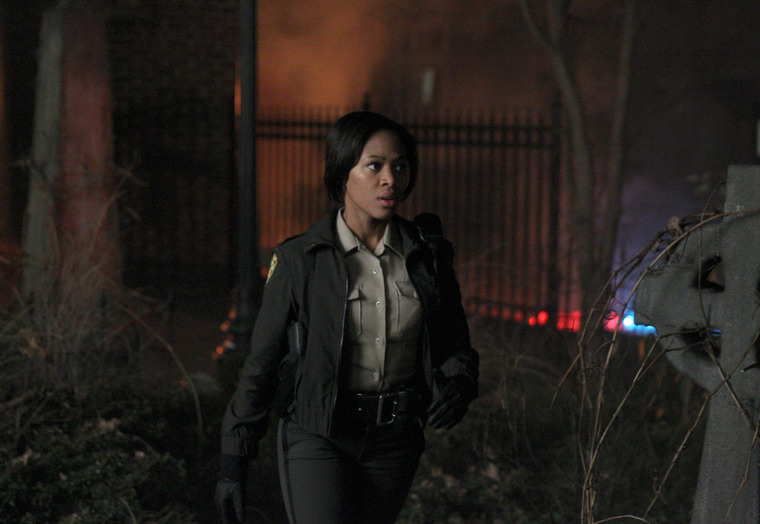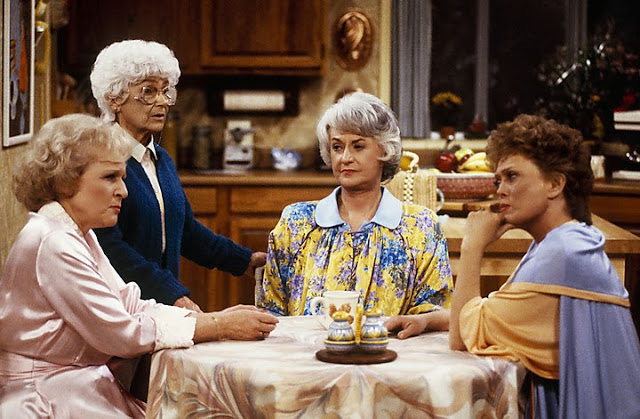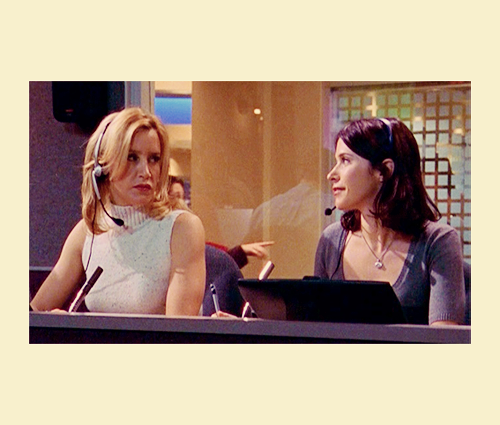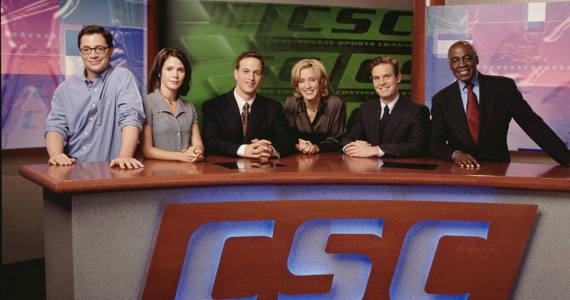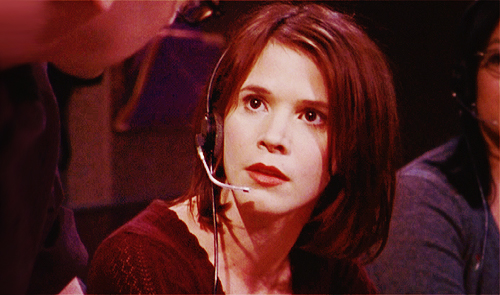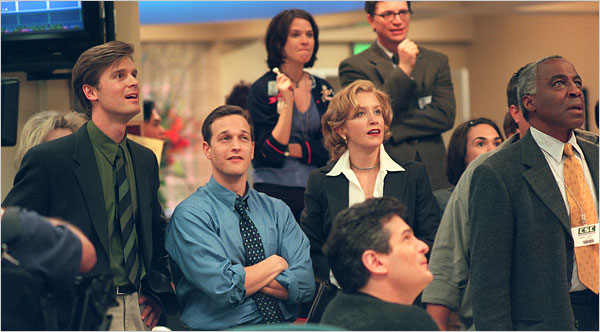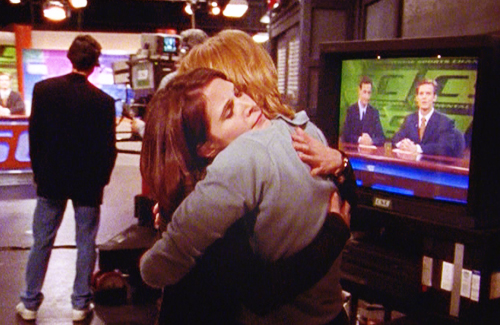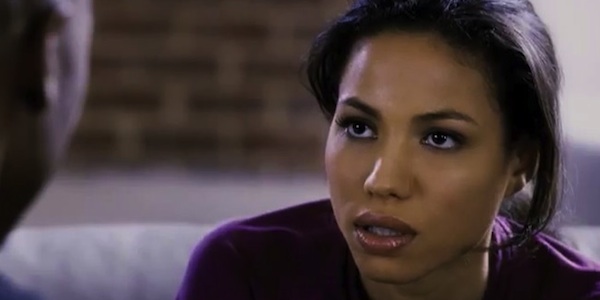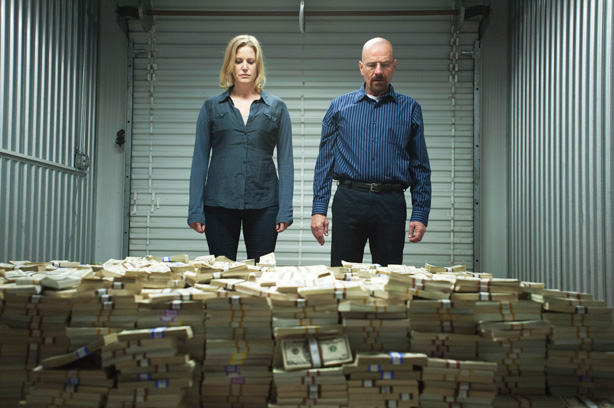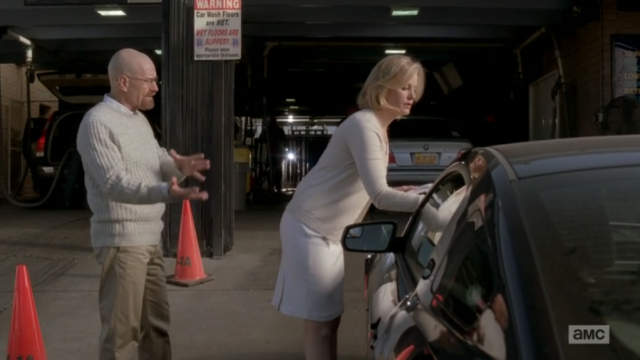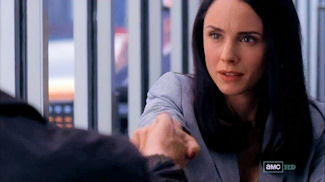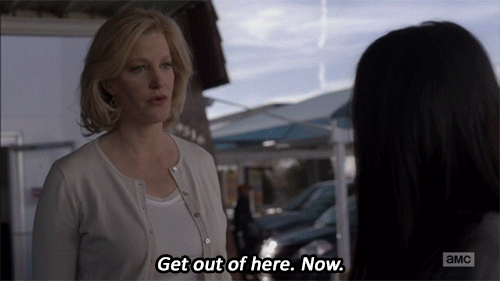
Written by Erin Tatum.
Masters of Sex is the most compelling period drama I’ve seen in quite some time, and trust me, I watch a lot of period pieces. I will admit that sometimes the stiffness of the dialogue and the character interaction can get a bit dry – the audience understands that social conventions were different in the past, but that doesn’t necessarily mean that everyone was robotic round-the-clock. I feel the writers have a tendency to use era authenticity as a cop-out for lack of emotional depth or creativity. Though it’s only been four episodes, Masters of Sex boldly rips the buttons off of the post-World War II stereotype of prudishness and conservatism. Below are just a few of the reasons why you should give the show a try, if you haven’t already.
1. The show is based on real people.

William Masters and Virginia Johnson were a gynecologist and sexologist respectively who pioneered the first study of human sexual response. Their collaboration and the controversy of their subject matter is the basis of the show, which is in turn an adaptation of Master’s biography. Masters and Johnson were later married for 20 years and then divorced. This may or may not be a spoiler for their TV counterparts (played by Michael Sheen and Lizzy Caplan), judging by the rising belligerent sexual tension established between them. Not to mention they are responsible for much of our common sexual knowledge today.
2. Female sexuality literally takes center stage.

Masters initially becomes curious about women in his study because he cannot fathom how or why a woman would fake an orgasm. He enlists the help of Betty (Annaleigh Ashford), a prostitute, who convinces the other women in her brothel to take part in the research. His primary goal is to delineate the stages of an orgasm, so he and Johnson spend a lot of time watching women masturbate. Admittedly, you should probably watch this show alone because to the unaware observer, it looks a hell of a lot like softcore porn. Also, there is some kind of giant glass dildo that’s similar to a space probe with a camera to observe physiological changes. Talk about invasive.
Joking aside, there are deeper dynamics at play here. Their time spent at the brothel gives the relatively affluent Masters and Johnson a gritty glimpse at working-class life in the struggle for survival. The myth of the ideal 1950s woman as an innocent, almost Victorian vessel of purity also starts to unravel as more and more women of all backgrounds begin to join the study and seem to know exactly what to do when prompted, albeit not without a little embarrassment.
It’s true that Masters solicits women partially because he thinks that no men would be interested in going solo for the study. However, the women turn out to be a gold mine of scientific revelations and sexual understanding.
3. Queer characters are humanized and perceived as equals worthy of respect.

Really, if one more period piece hides behind the excuse of the era and cultural context to get away with another tired “masochistic gay, cue violins” plot I’m going to scream. Luckily for me, the instances of queerness that we do see are pretty bad ass, confident people. Betty happens to be a lesbian, a frank, self-admitted detail that Bill finds perplexing when she asks for the run-of-the-mill Playboy magazines to masturbate to. (Johnson quickly put an end to his grumbling by countering, “Isn’t an orgasm an orgasm?”) Betty even has a lover, although we never see her on screen. She develops a friendship with Johnson and particularly Masters, who both go out of their way to express concern that she isn’t being true to herself or her lover when she starts to contemplate marrying a man for financial stability.
Masters reacts with predictable uneasiness when Betty recruits gay male prostitutes to participate in his study without his knowledge. To his credit, he still doesn’t outright refuse when two of the men offer to “put on a show” for him. He throws a hissy fit about only having data from deviants after his study is repeatedly denied funding, but ultimately rallies to the defense of the everyday men who visit the hustlers, proving that male homosexuality isn’t as deranged as 1950s masculinity would like to believe.
4. The characters are realistically flawed without creating a black-and-white morality.

Bill Masters’ Achilles’ heel is that he’s married to his job and his job is all about sex, which naturally deflates his domestic life and his passion for his wife, Libby (Caitlin FitzGerald). Libby has the air of a fresh-faced Betty Draper before the bitterness and alcoholism took its toll. The main source of strain on their marriage is their struggle with infertility. They genuinely try to make the other happy, although Libby is definitely the stereotypical flower of a trophy wife withering under her husband’s lack of communication and emotional availability. She may appear to be a bauble of a woman, but she’s sensitive and perceptive. You aren’t exactly rooting for Bill to stray from her.
Johnson is a single mother of two who holds her head high despite being twice divorced. She doesn’t shy away from casual sex and she has no tolerance for that whiny friendzoned bullshit. She contemplates Masters’ preposition that they should sleep together “for the study.” On one hand, you want them to sleep together to act on their chemistry, but on the other, you hope Virginia is levelheaded and ethical enough to value her budding friendship with Libby over an exploratory one night stand that would lead to the most cliché collapse of bonds between women.
The narrative consistently confuses you since you find yourself supporting potentially bad decisions on the characters’ behalf because you understand their perspective. Sympathy and empathy with flaws in mind – the cornerstone of strong characterization!
5. Masters of Sex isn’t Mad Men…and that’s a good thing.

Due to the similarity of the time period, some have drawn comparisons between Masters of Sex and Mad Men. Yes, the style is drool-worthy and good ol’ boys club mentality is in full effect, but the comparisons should end there. There are a few formulaic echoes: the hard working introvert stuck in a dead end marriage partners up with the secretary to discover some deeper philosophy about the human experience via their collaboration. However, Masters of Sex isn’t afraid to display the chaos bubbling beneath the surface of the prim and proper pressures that society presents. Instead of having to hyper analyze every single glance or deadpan line of dialogue for hidden meaning, the characters wear their intentions on their sleeves. They’re lost and determined and uncertain and arrogant all at the same time. It’s glorious.
Masters of Sex is a breath of fresh air for the genre. Each episode is a relished, slow drag on a cigarette.
